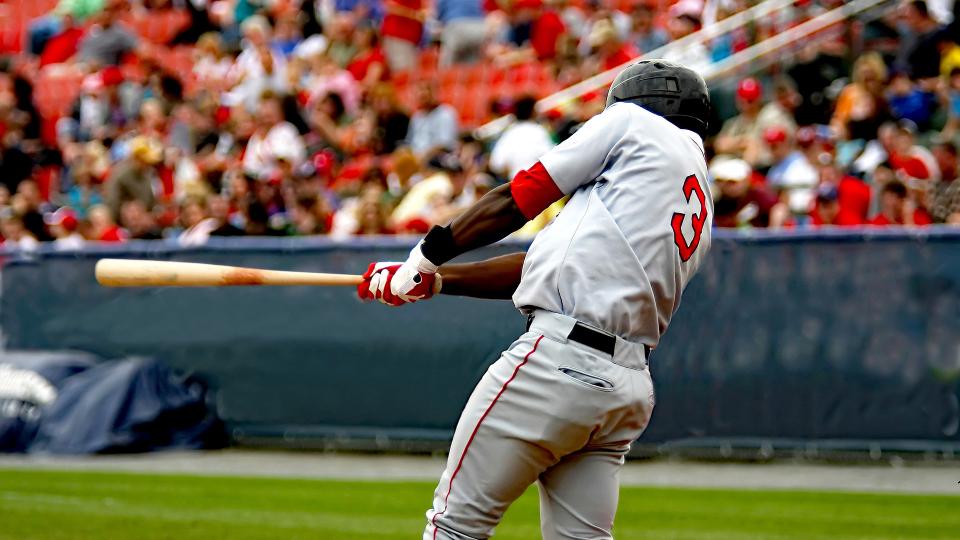
Ever since the Oakland Athletics’ ‘Moneyball’ days, participants at the highest level of America’s national pastime have relied on statistics, looking for an edge on the competition. Now, research from the University of Maryland’s Robert H. Smith School of Business is helping Minor League Baseball players do the same.
The research, “Baseball Informatics—From MiLB to MLB Debut,” published by Springer in the 2023 edition of Analytics Enabled Decision Making, helps drafted players in the Minor League system identify aspects of their game they must improve to increase their chances of receiving the call-up to the Major League.
Maryland Smith’s Chung-Hao Lee, MS in Information Systems ’22 and Full-Time MBA ’22, and associate clinical professor Adam Lee, sharing a mutual passion for baseball, leveraged machine learning to analyze baseball performance stats and non-baseball data of players drafted to MiLB from 2001 to 2010 and create models predicting the likelihood of a drafted player reaching the Majors.
“As we hope our research has real-world impacts, we were able to apply and compare multiple machine learning techniques among multiple combinations of properties and attributes of the drafted players. We will be glad such machine intelligence results can improve their performance to reach higher career opportunities sooner than later,” says the professor.
Based on their findings, the graduate student and professor determined four significant factors contributing to MiLB players receiving a call-up to the big leagues – batting average, slugging percentage, draft position and overall time spent in the Minor League system.
“Moneyball taught us that the important factor in deciding whether a player can be called up to the Major League is their on-base percentage,” says Lee, now an artificial intelligence and machine learning project manager at Winstron in Taiwan. “But based on our model, we found that the batting average is way more important to decide whether the player can be called up.”
As a result of the research, Lee received a second-place honor during the 2022 UMD Graduate Research Appreciation Day for solidifying his commitment to academic excellence and innovative research and a nomination for the 2022 UMD Outstanding Graduate Assistant Award.
He says the research can positively impact MLB savings primarily in two areas – time and money.
According to the paper, roughly 1,500 prospects are drafted to the MLB annually. Those who accept offers begin their careers in the MiLB, but less than 20% of prospects will eventually make the jump to the big leagues.
On the business side, teams invest tens of millions of dollars on MiLB prospects’ signing bonuses, salaries and development, with diminishing returns on players selected deeper into draft classes.
“If you look at it from this lens, these teams will have a better idea of who to call up and when they should be called up,” says Lee. “Knowing those two things will save MLB teams time and money, and players can enhance their training to help them generate more value.”
Defensive attributes, base running speed and sheer athleticism, while not prioritized by the research models, are all still factors that might contribute to a prospect’s ascent through the MiLB system.
New technologies, like PITCHf/x, which shows the path and speed of each pitch and the location in relation to the strike zone, are adding a new dimension to data-driven decision-making in baseball and hopefully will spur more research into the sport, Lee says.
“The most popular form of data analytics in baseball right now is in pitching and batting motions for players to enhance their abilities in those areas,” says Lee. “I think with new technology, future research in the sport will be very exciting.”
Read More: “Baseball Informatics—From MiLB to MLB Debut,” published in Springer.
Media Contact
Greg Muraski
Media Relations Manager
301-405-5283
301-892-0973 Mobile
gmuraski@umd.edu
Get Smith Brain Trust Delivered To Your Inbox Every Week
Business moves fast in the 21st century. Stay one step ahead with bite-sized business insights from the Smith School's world-class faculty.